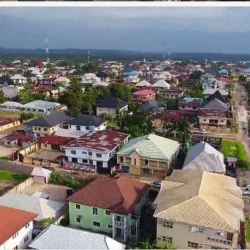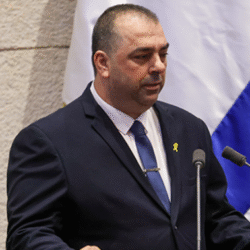Dr Mansour Abbas is reshaping Israeli politics as the leader of the United Arab List. Explore his journey from dentistry to diplomacy, his political milestones, and his role in bridging Arab-Jewish divides.
Early Life and Educational Foundations
Born on April 22, 1974, in Israel, Dr. Mansour Abbas hails from the town of Maghar in the Galilee, a region known for its diverse and vibrant Arab community. His upbringing in this multicultural environment deeply influenced his later political ideology centered on inclusion, reconciliation, and dialogue.
Dr. Abbas pursued a degree in dental medicine at the Hebrew University of Jerusalem, graduating as a certified dentist. This early professional choice demonstrates a commitment to service—something that later transitioned from healthcare to politics. During his time at university, he didn’t just focus on academics. Between 1997 and 1998, he chaired the Arab Students Committee, an early indicator of his leadership potential and dedication to civic engagement.
Currently, Dr. Abbas is furthering his education with a master’s degree in Political Science from the University of Haifa, aligning academic theory with real-world political practice.
From Dentist to Politician: A Purpose-Driven Transition
Though his formal career began in dentistry, Dr. Mansour Abbas quickly realized that meaningful change required political power. His grassroots involvement evolved when he joined the Southern Branch of the Islamic Movement, where he now serves as Deputy Chairman.
He is also the principal author of the Islamic Movement’s Charter, which emphasizes “Wasatiya” Islam—a moderate, centrist interpretation that promotes tolerance, justice, and coexistence. This ideological stance differentiates him from more hardline elements and underscores his unique role as a bridge-builder within Arab society and between Arab and Jewish communities.
Champion of Change in the Knesset
Dr. Abbas’s political journey officially began in the 21st Knesset when he entered under the Ra’am-Balad alliance. Since then, he has served continuously through the 22nd to the 25th Knesset, representing the United Arab List (Ra’am).
His tenure is marked by active participation in key legislative committees:
- Finance Committee
- Special Committee on Eradicating Crime in Arab Society
- Constitution, Law and Justice Committee
- Joint Committee on National Security and Constitutional Oversight
As Deputy Speaker of the Knesset and Chair of several influential caucuses, Dr. Abbas has continually amplified Arab voices in Israeli governance.
Fighting Crime and Promoting Peace in Arab Communities
Perhaps his most defining legacy is his relentless focus on eradicating crime and violence in Arab communities. As chair of multiple special committees and caucuses targeting this issue, he has worked tirelessly to bring state resources, policy attention, and law enforcement reforms to underserved areas.
In recognition of his efforts, Radio Alshams named him “Man of the Year” in 2018 for his role in promoting reconciliation and resolving disputes within Arab society. This acknowledgment reflects his broader vision of a cohesive and peaceful society grounded in justice and equity.
A Political Bridge Between Communities
What sets Dr. Abbas apart is his willingness to cross traditional political lines. In a historic move, he led Ra’am to join a governing coalition with Jewish parties—breaking taboos and setting a precedent for Arab participation in national leadership.
His pragmatic approach has drawn both praise and criticism. Yet, it has undeniably redefined the political landscape, offering a template for future Arab-Israeli cooperation based on mutual respect and shared interests.
Personal Life and Values
Beyond politics, Dr. Abbas is a family man. He lives in Maghar with his wife and three children. Fluent in Arabic, Hebrew, and English, he navigates diverse cultural and political arenas with ease.
His multilingualism and inclusive worldview not only make him a skilled communicator but also enhance his capacity to build coalitions across Israel’s complex societal fabric.

Frequently Asked Questions (FAQs)
1. What party does Dr. Mansour Abbas lead?
He is the chairman of the United Arab List (Ra’am), a party that advocates for Arab rights within the framework of Israeli democracy.
2. What is Wasatiya Islam?
It’s a moderate, centrist interpretation of Islam that emphasizes balance, tolerance, and peaceful coexistence—core to Dr. Abbas’s political philosophy.
3. Has Dr. Abbas ever held a government position?
While he has not been a minister, he has served as Deputy Speaker of the Knesset and chaired several influential committees.
4. Why is Dr. Abbas’s political stance considered historic?
He was the first Arab leader to bring his party into an Israeli coalition government, challenging long-standing political norms.
5. What is his primary focus in the Knesset?
Combating crime and violence in Arab communities is his top legislative and advocacy priority.
6. What recognition has he received for his work?
He was named “Man of the Year” by Radio Alshams for promoting reconciliation in Arab society.
A Lasting Legacy in Progress
Dr. Mansour Abbas is more than just a politician—he is a reformer, a bridge-builder, and a visionary. His journey from a dental clinic to the halls of the Knesset symbolizes a broader movement within Israeli society toward inclusivity and pragmatic governance.
By tackling deep-rooted issues within Arab communities and boldly participating in Israel’s national politics, Dr. Abbas is paving the way for future generations. His legacy is still unfolding, but one thing is clear: he is changing Israeli politics from the inside out, one reform at a time.




